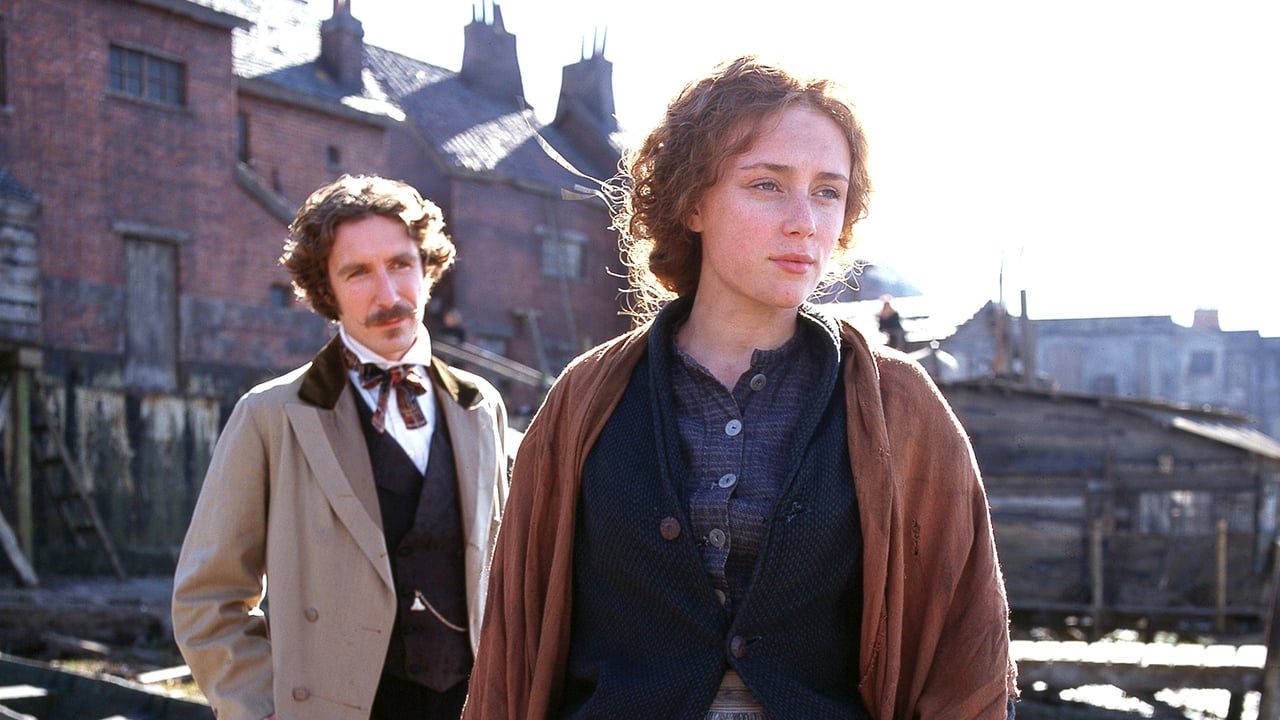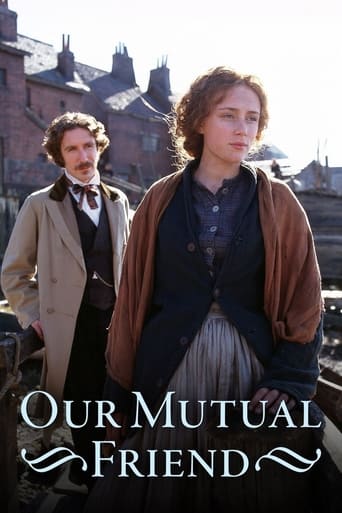

Plot so thin, it passes unnoticed.
... View MorePeople are voting emotionally.
... View Morejust watch it!
... View MoreThis movie tries so hard to be funny, yet it falls flat every time. Just another example of recycled ideas repackaged with women in an attempt to appeal to a certain audience.
... View MoreThe very first element that has to be said about this novel, or this work is that it is too intricate and characters are too complicated and intertwined in their motivations and even identities that we find it difficult to follow. The plot is slightly too thick for me.The second element is the social cruelty of the story. Cruelty against the poor, the small, the lower classes. They are working like hell making their bosses rich and they are described as having no real human feelings, no real human dimension. They are like human animals living in dirt, squalor and bleakness. It is at times unbearable how little self-respect they may have for themselves, and as for that only a few, and very few women make an effort among these poor people to be clean and keep their house and household clean.These poor are over-endowed with alcoholism and gross attitudes and habits, drinking late at night in dirty and in many ways disgusting public houses. And here is Dickens's social Darwinism. The upper classes are shown with all kinds of respectable qualities and everything is genteel with them. They drink in parties in glasses served to them on a tray by special servants, with music and beautiful dresses and suits. In these circles marriage has to be within one's own social rank, a type of social segregation particularly obnoxious, and marriage is first of all for money and nothing else, which is absolute hypocrisy, but at least in comfort and cleanliness, except for the abuse of cigars.So think of the situation in this novel of a miser of no genteel extraction and with no respectable human sentiments, who made his fortune out of the heap of dirt and rubbish collected in London and deposited up some river and sorted out with shovels by some human rats. What's more being a miser he is rejected by everyone. So his decision to give all his fortune to his son whom no one knows at all provided he marries the woman this father has set for him in his will makes the whole thing melodramatic and overwrought.So after a few murders and a lot of squalid events Dickens manages to bring up some happy ending for three young couples and an older one and a good old sound heavy moral lesson about doing what the heart is supposed to tell you to do and never be over-fascinated with money. But at the same time the only people who really suffer in this situation are the poor, even if they are shown as deserving that treatment. When you are born in the dregs of society your are bound to remain there and to end very badly.A little bit short, Mr. Dickens, and your regenerated main character is regenerated only symbolically, and he could not be rejected to the end since he was born on the right side of the silver spoon, even if this silver spoon has to be called a garbage shovel.Dr Jacques COULARDEAU
... View MoreI was confused throughout most of this series, regarding the characters and their relationships to one another, so much so that I wonder if I watched the episodes in their proper order. All, however, was resolves in Episode Four. I made certain I watched it last.Like the other BBC renditions of Dickens, it's obviously a classy production. In a way, the narrative threads -- which perplexed me -- are just the icing on the cake anyway, because the production values here are so high and so persuasively accurate that it's like watching a five-hour ethnography of London in the 1840s. I've never seen such filth. All of Dickens' works involve the poor, but these "boat people" are at the very bottom of the scale.They live in and around the mud on the banks of the Thames and they cart away cinders from heaps of ashes to be sold for making bricks. And I always thought I had it bad. Timothy Spall, as the humble but good Mr. Venus, hauls garbage in its various configurations from the river to refurbish and resell them -- cast-off clothing, discarded umbrellas, carcasses of animals and humans, bits of metal, glass jars, dolls. He's managed to accumulate enough human bones -- a femur here, a calcaneus there -- to assemble an almost complete human skeleton, of which he is justly proud. It engenders one of those choice bits of Dickensian prose. Mr. Venus is associating with a respectable woman and he's hopeful that, if they are ever married, his profession won't lead to "her being regarded in a bony light." I love it when they say things like that. Elsewhere, Dickens has a character exclaim: "Oh, joy! What a reversal of desolation!" No wonder W. C. Fields was so convincing as Mr. Micawber.Dickens clearly means to direct our attention to the plight of the poor. These are people who, when they grow old and die, crawl off under a bush and expire alone like worn-out animals.Yet Dickens doesn't romanticize his disenfranchised. There is at least as much evil among them as there is among the rich. And this is a typical story for him -- hidden wills, marriage above or below one's station, intrigues to lay hands on an inheritance, blackmail, that sort of thing. But Dickens was no revolutionary -- not, at least, judging from those of his works that I'm familiar with. Everything can be solved by truth, charity, and justice. Well, sometimes.Being a scavenger in the rubbish heaps or the cholera-ridden cloaca that was the Thames was in fact a dangerous business. Disease was rampant, especially among children, at the time. That was all before Britain's National Health Care, of course. It's curious that, as I write this, there is such a hateful outcry against even the slightest form of improvement in health care in the United States. I'm compelled to believe that there are Americans of some number who wouldn't object to a return to the health delivery system of Dickensian London. If poor people had any ambition they wouldn't get ill in the first place. Social Darwinism redux. Herbert Spencer is applauding from beyond the grave. Scrooge would have approved too.All the performances are at least adequate and some are better than that. Anna Friel as Bella is outstanding. She's not afraid to talk and eat at the same time. The Make Up Department should get a medal. What overblown blowziness! The teeth of the poor are especially well done. They seem to hang in the air by themselves as things do in especially amorphous nightmares.But I think I may have worn out my enthusiasm for the Dickens series. Maybe it was my own fault. Maybe I DID mix up the episodes. But it seemed a little tiresome -- long, mostly sad, and complicated. Made me want to watch a Bugs Bunny cartoon or eat some sherbet or something to clean my palate. But they're so well executed that I'm sure I'll get back to them after a year or two in a straight jacket so I don't slit my wrists.
... View MoreThis is the best Charles Dickens' screen adaptation i've ever seen. As soon as i saw it i went out and bought it. I spend entire days watching. the characters are so involving you just have to put in the next tape even if you know what happens. The acting is amazing and the screen play is well written. My sister and I are in love with John. Part of the appeal of this movie is that it is uplifting. Something that i find unusual in Dickens'. the music is great as well and really adds to the emotions of the piece. Be warned it is six hours long, but well worth it.All in all a great movie and anyone who loves a good romance, treachery, or murder mystery should see it because it blends all three. If you haven't seen it see it! If you have seen it, see it again.
... View MoreTook a lot of my friends by surprise.They are in two basic categories:(1) Never saw the remaining parts - "TOO MANY CHARACTERS"(2) Saw Part TWO and Loved the acting - storyline - etc.(those falling into part two - still thought it had too many characters).AS USUAL - TOP NOTCH ENGLISH DRAMA - WISH USA HAD AS GOOD AS CONSISTENTLY!!!!!!!!!!!!!
... View More